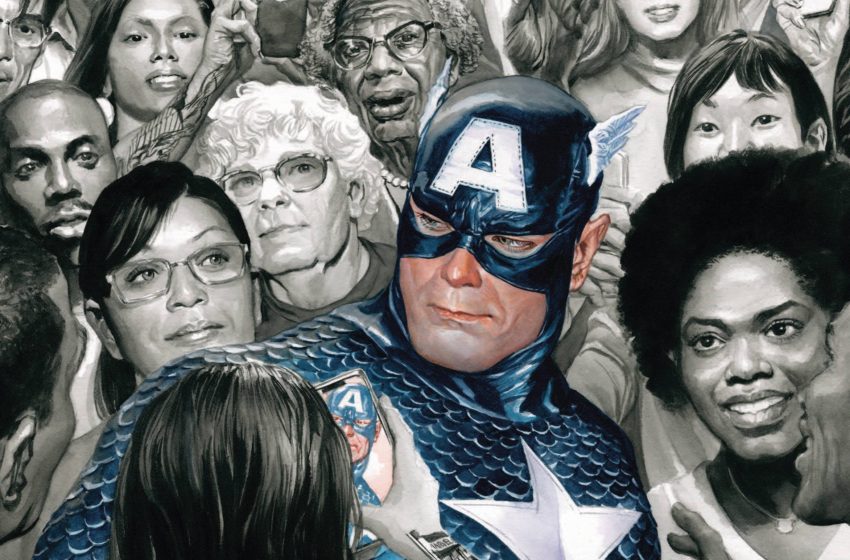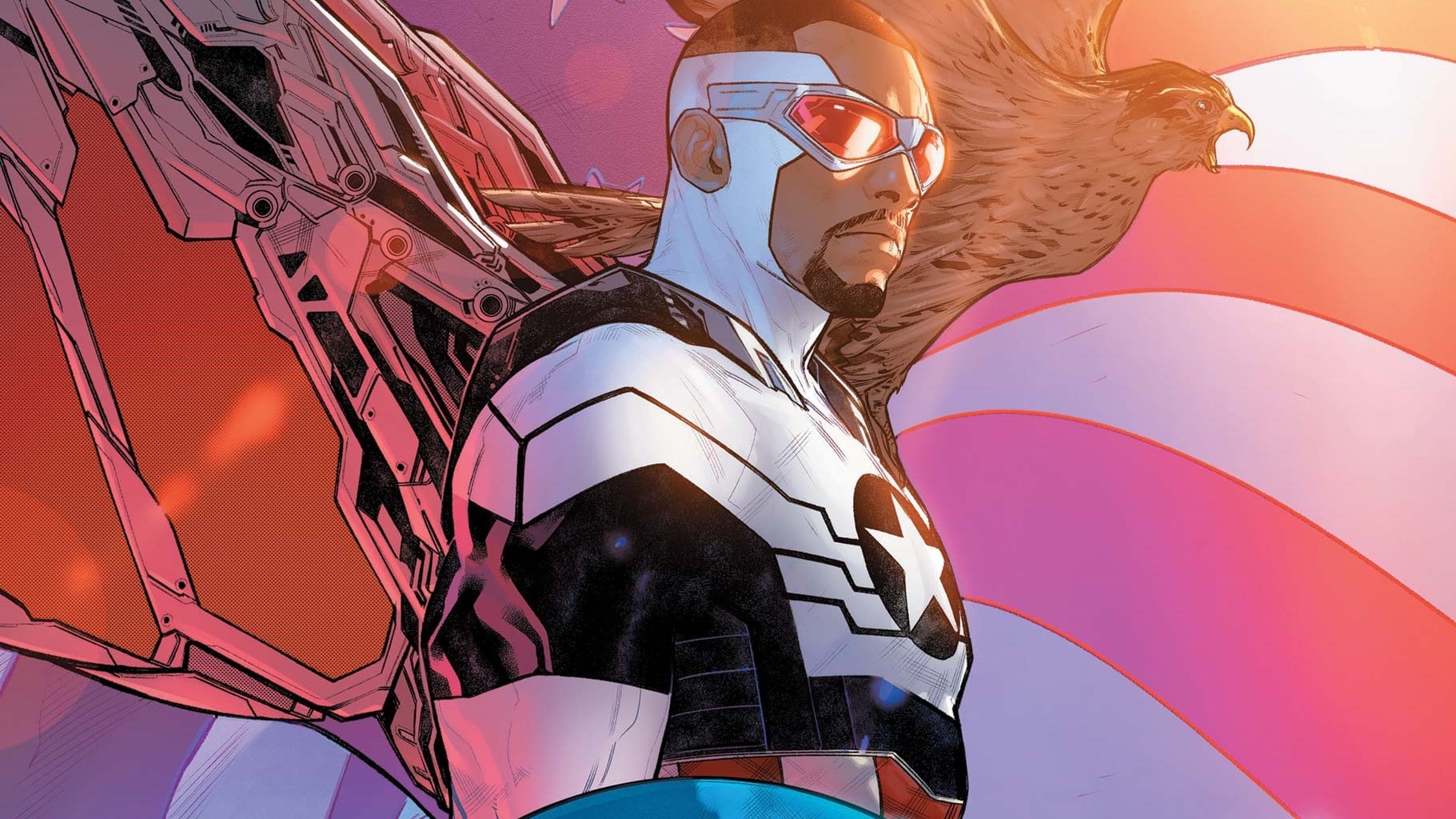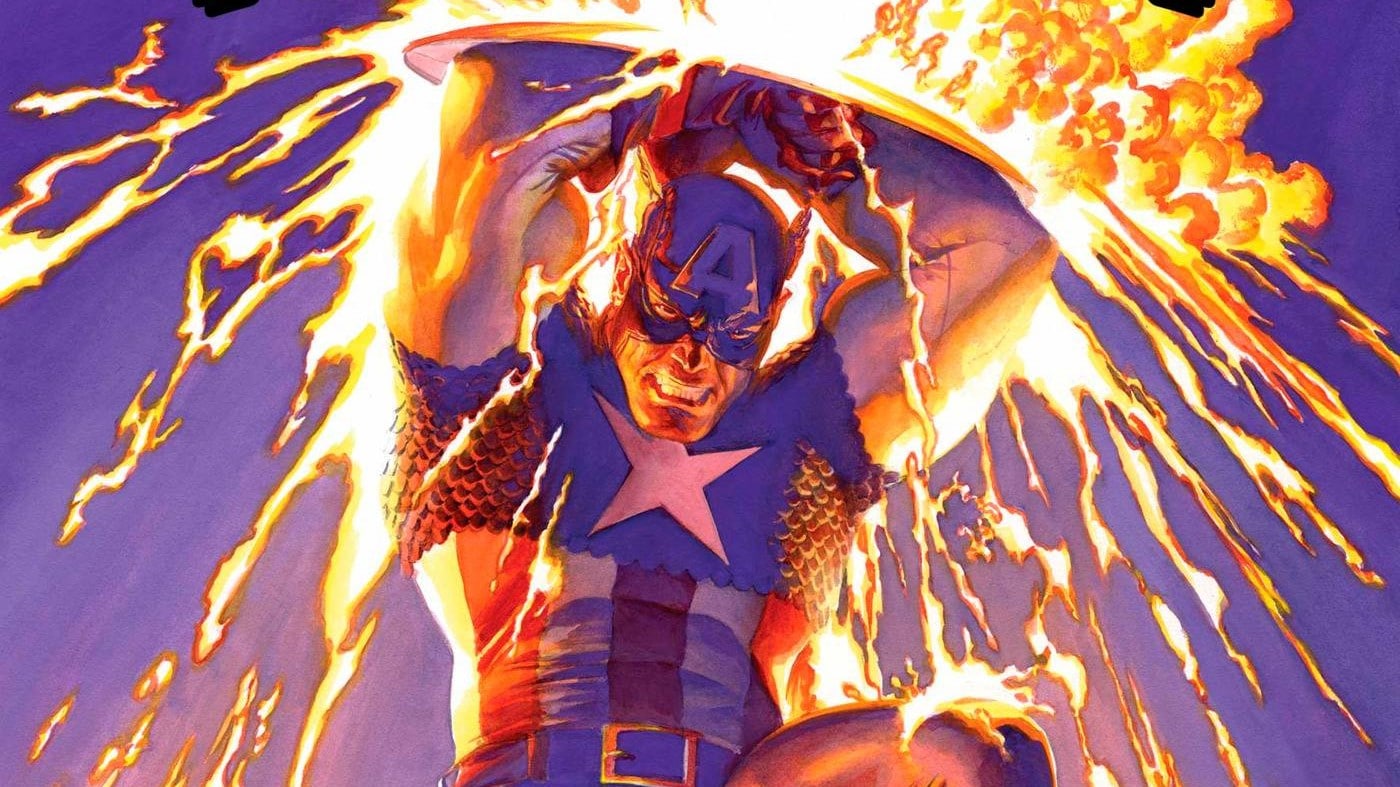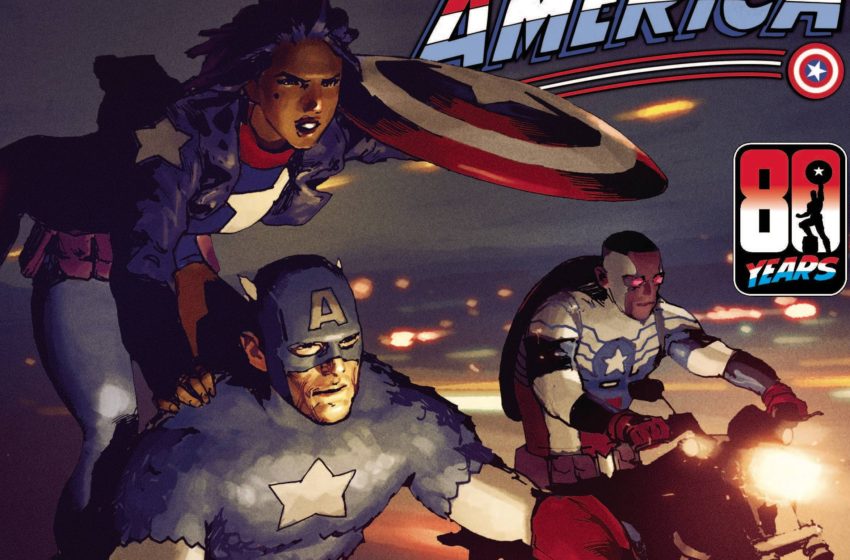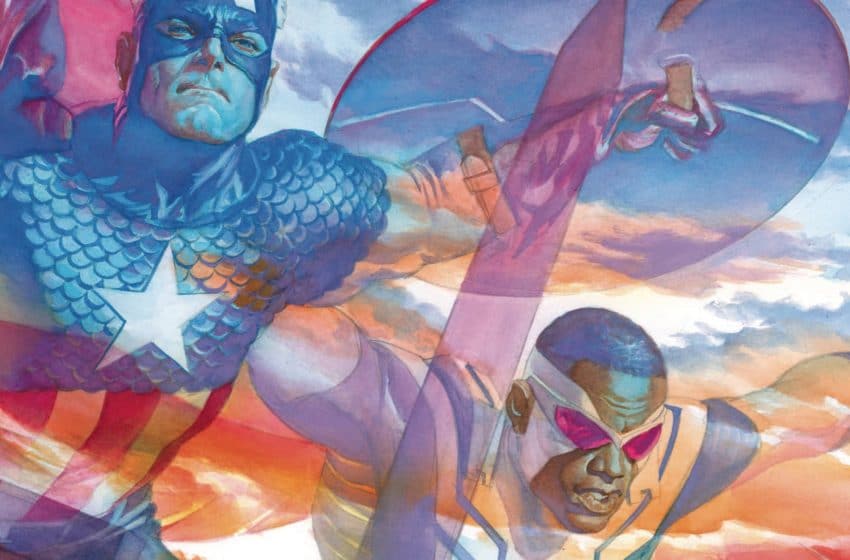Steve Rogers tries to confront the evils being seeded within American society once more as Ta-Nehisi Coates’ run comes to a close in Captain America #30. Art by Leonard Kirk, color art by Matt Milla, and letters by Joe Caramagna.
“You slept through some things, didn’t you?”
It’s just past Independence Day, and as our country often forgets (and actively makes it illegal to remember), many of us were not freed on the Fourth. What to the enslaved (and their descendants) is the Fourth of July? As I pondered this question over fireworks and cookouts (also questioning whether my participation in festivities makes me a hypocrite or is simply me claiming what my ancestors paid for in blood) I wondered:
What to a Black man is Captain America? A source of hope? A joke? An anachronistic ideal wrapped in pseudo patriotism? or simply an imperfect man, trying (imperfectly) to be better? After 30 issues of writer (and professor!) Ta-Nehisi Coates’ run on Captain America, I’m not completely sure…and that might be the point.
Captain America #30 is a stoic and staid end of the story, wrapping things up well enough to let another writer continue on and, if they so wish, ignore just about everything that happened in this run.
Cap beats up on some people. He engages with Red Skull over dinner (this is a thing now apparently?), finding a subtle and precedent, if not poetic way to nullify his influence: he broadcasts the Skull’s true thoughts on those he’s influenced to those he’s influenced, and lets the chips fall were they may. Along the way we find Skull’s daughter emboldened, empowered, and strangely absent. We find Cap’s compadres pensive, if resolute.
And…that’s it. The issue ends.
There are few permanent changes to the characters (de-aging of Ms. Carter and the death of Alexa notwithstanding), and even fewer changes to the lexicon of the line. No new enemies, no new status quo. It’s not even clear if Cap even “won” in the end, as Red Skull is still broadcasting, albeit to a smaller audience.
Everything just kind of happens. And maybe that’s the point. Maybe massive drama and change was never the purpose of this run.
Maybe introspection was.
The question, then, is less “what happened” and more “do I better understand the mind of Steve Rodgers? Do I better empathize and contextualize his actions?”
Does Captain America—as a stand-in for the ideals of America AND for the nefarious actions of America (the history of Hail Hydra still haunts him)—deserve praise or grace?
I don’t know.
There were a lot of monologues and reflections in these issues. A hallmark of this run was thoughtful monologues of Cap questioning his purpose juxtaposed with Cap beating the crap out of just about everyone.
And while I get that Cap was not at ease with the decisions he’s had to make; while I understand that he fights for the dream of America, in full awareness of how the reality of America sometimes acts in opposition to that dream; while I understand all of these thoughts, none of the character actions felt impacted by these thoughts. He still beat up bad guys. He and his team still used subversion (including Kingpin of all people) to get their work done.
When high morals met resistance, Cap took the road most often traveled – violence and vengeance. And thus nothing changed. Not for Cap, not for America, not for this run.
Again, maybe that’s the point. Maybe that’s the implicit lesson – high-mindedness means nothing if the actions don’t match. Or maybe I’m giving grace to a writer I openly admire. Maybe my faith in his abilities blinds me to the reality of a mediocre run.
Maybe I’m Steve Rogers, trying to navigate the mess of (Captain) America with a hopeful spirit, but still weighed down by the reality of my circumstances. Maybe I understand and appreciate (Captain) America because of the mediocrity, not despite it.
Funny how that works. What is (Captain) America to a Black man, then? Just a person; just a place. Nothing more; nothing less.
Maybe that’s enough.
A proud New Orleanian living in the District of Columbia, Jude Jones is a professional thinker, amateur photographer, burgeoning runner and lover of Black culture, love and life. Magneto and Cyclops (and Killmonger) were right.
Find more of Jude’s writing here.

